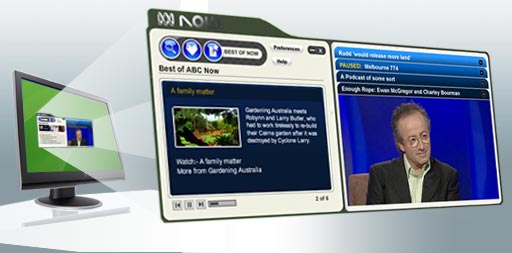Policy wonks, quango officials and broadcast executives met in central London last Thursday to debate the state of the U.K. VOD industry: offering perspectives on incumbent services, those soon to launch, rights management and pending regulatory changes.
Unsurprisingly, the first half dealing with audiences, programming and business models packed them in, while 90 minutes on regulation drove half the audience away, and left the other half in near coma.
Virgin Media’s charismatic Malcolm Wall, CEO of Content, hailed the success of VOD rollout on his platform, proclaiming that “the UK market is coming of age.” The service offers 3,700 of video content, including around 1,000 hours of catch-up TV from broadcasters such as the BBC and Channel 4. Just under half of Virgin customers use the service at least once a month (this compares with around 70% of Comcast subsribers stateside), with around 30% of views to catch-up TV. Some 270 million pieces of content viewed during 2007. His prediction that VOD viewing on the platform would soon outstrip linear viewing of terrestrial channel Five was built on with the further portent that 20% of UK viewing would be non-linear within the next five years. But most striking of all was his disclosure that subscription-based viewing is rapidly replacing pay-per-view.
Both Wall and BBC Future Media Group Controller Erik Huggers used their respective turns to plug the impending launch of a “10 foot” version of BBC iPlayer on the Virgin Media platform, due Q2 2008.
Channel 4’s Sarah Rose, Head of VOD and Channel Development, asserted that partnerships with TV platform partners Virgin, BT Vision and Tiscali TV were “fundamental” and responsible for generating the majority of views to the broadcaster’s 4oD umbrella brand. The biggest mindset change for C4, Rose said was developing approaches for customer relationship management, investing in software functionality and developing new approaches for compliance in an environment where the 9pm watershed is immaterial.
4oD online has an installed base of 1 million users (those who have installed the service software) and unsurprisingly the constituency is 60% male. More striking though was the suggestion that the most active of registered users skews female. Around two-thirds of online users are under 35. No surprises that comedy, drama (about a third of all viewing) and entertainment lead performance, but minority interest programming also does “disproportionately well”. The service is split between around 3,000 hours of (mostly free to view) archive – some of which can “engender loyalty to series” – 60 to 70 hours of new catch-up TV every week and around 300 films.
But there were two star turns at the event: Paddy Barwise, Emeritus Professor of Management and Marketing at the London Business School, and Roger Edmonds, a freelance journalist and one of the key figures behind UKNova, a BitTorrent site which specialises in British TV programmes.
“Calm down dears,” was Paddy Barwise’s opening remark, attempting to balance the boundless enthusiasm of incumbent providers with the reality check that for the overwhelming majority, linear TV rules. Barwise said that while announcements from major players were creating enormous developments on the supply side, but the demand side remained sluggish. Adding: “let’s have a bit of huimility about what will or won’t work, before throwing out too many babies with the bath water.”
John McVay of independent producer trade body Pact chipped in with the challenge that broadcasters may like to consider boosting spend on quality programme-making, before over-investing in technical platforms which were yet to prove themselves with mass audiences.
Roger Edmonds of UKNova threw down the gauntlet to U.K. broadcasters, promising that when they could fully meet the demand for British TV programmes that he sees from his users with a free service, he’d close his site down. With a nod to Project Kangaroo, the soon-to-launch on-demand joint venture between U.K. terrestrial broadcasters, he decried the scarceness of choice from traditional players.
Jeremy Olivier, Head of Convergent Media at regulator Ofcom issued the rallying call which cleared half the room, and devoted his piece to changes ushered in by the European Audiovisual Media Services Directive, which compels member states to move to more robust regulation of the VOD sector, including greater protection from content which may harm or offend vulnerable audiences. Ofcom has pulled together an industry panel to



